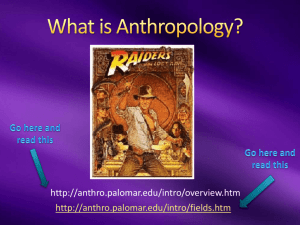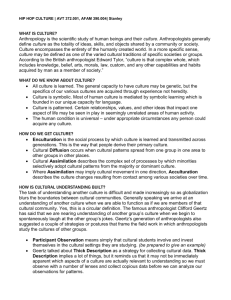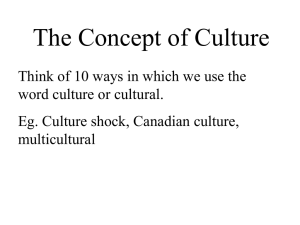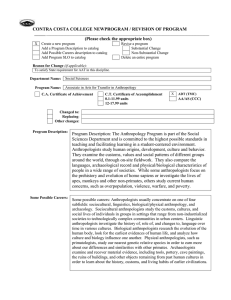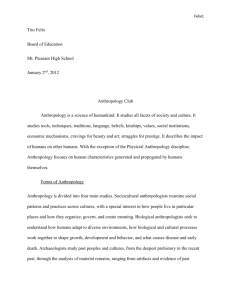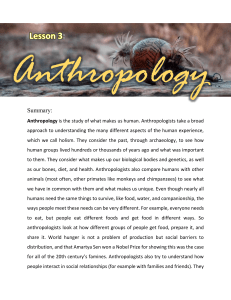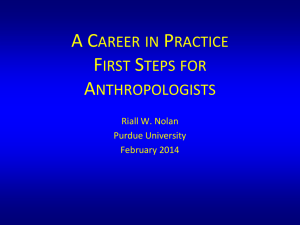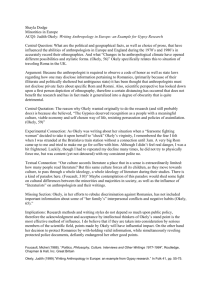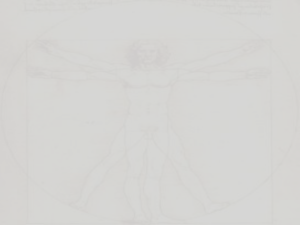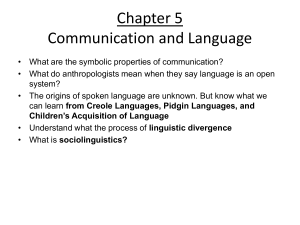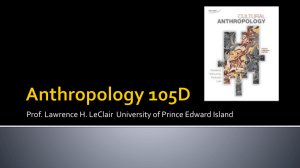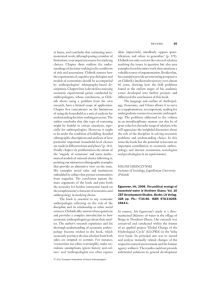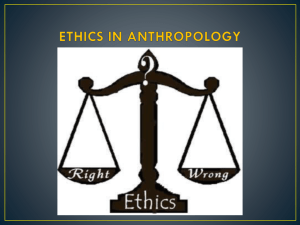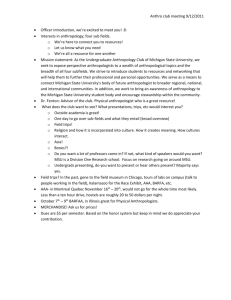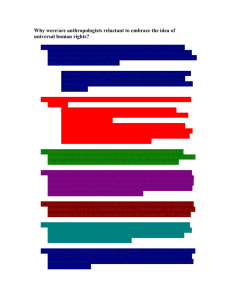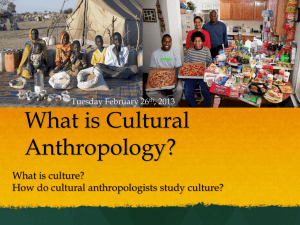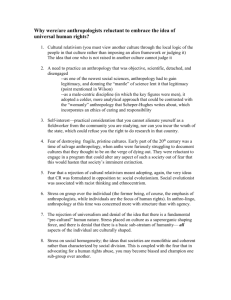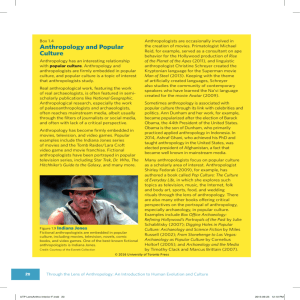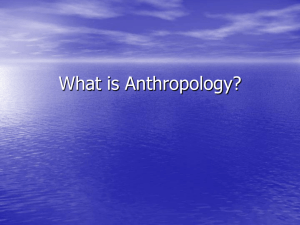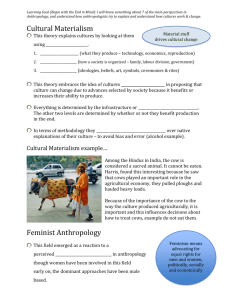Marx (1818
advertisement
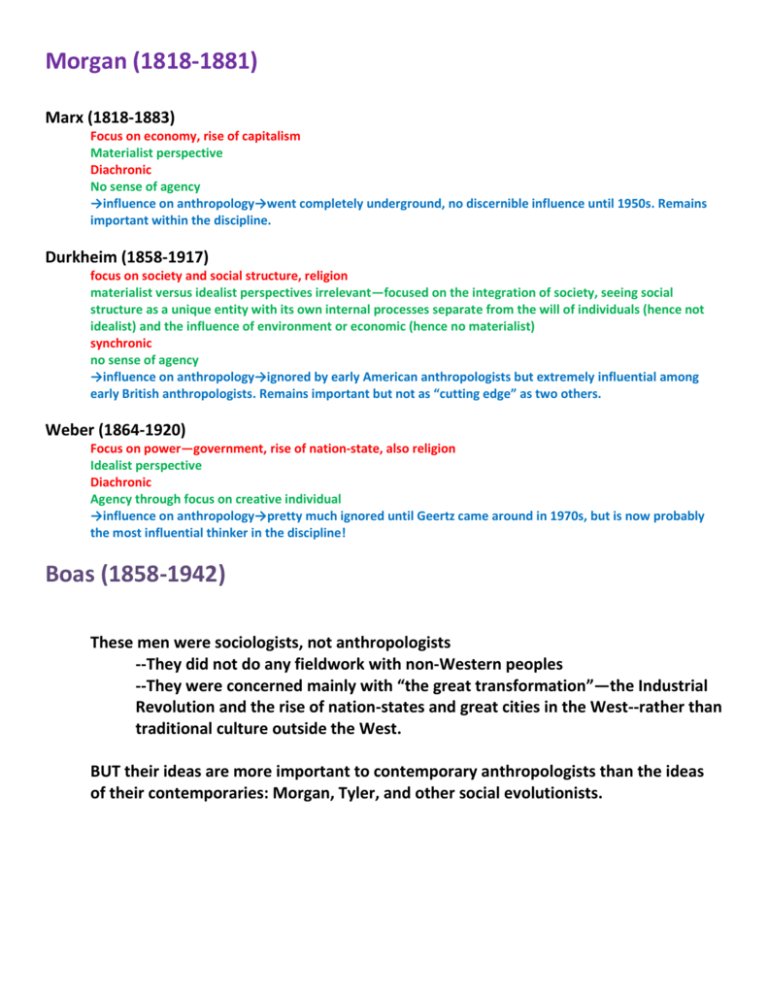
Morgan (1818-1881) Marx (1818-1883) Focus on economy, rise of capitalism Materialist perspective Diachronic No sense of agency →influence on anthropology→went completely underground, no discernible influence until 1950s. Remains important within the discipline. Durkheim (1858-1917) focus on society and social structure, religion materialist versus idealist perspectives irrelevant—focused on the integration of society, seeing social structure as a unique entity with its own internal processes separate from the will of individuals (hence not idealist) and the influence of environment or economic (hence no materialist) synchronic no sense of agency →influence on anthropology→ignored by early American anthropologists but extremely influential among early British anthropologists. Remains important but not as “cutting edge” as two others. Weber (1864-1920) Focus on power—government, rise of nation-state, also religion Idealist perspective Diachronic Agency through focus on creative individual →influence on anthropology→pretty much ignored until Geertz came around in 1970s, but is now probably the most influential thinker in the discipline! Boas (1858-1942) These men were sociologists, not anthropologists --They did not do any fieldwork with non-Western peoples --They were concerned mainly with “the great transformation”—the Industrial Revolution and the rise of nation-states and great cities in the West--rather than traditional culture outside the West. BUT their ideas are more important to contemporary anthropologists than the ideas of their contemporaries: Morgan, Tyler, and other social evolutionists.
